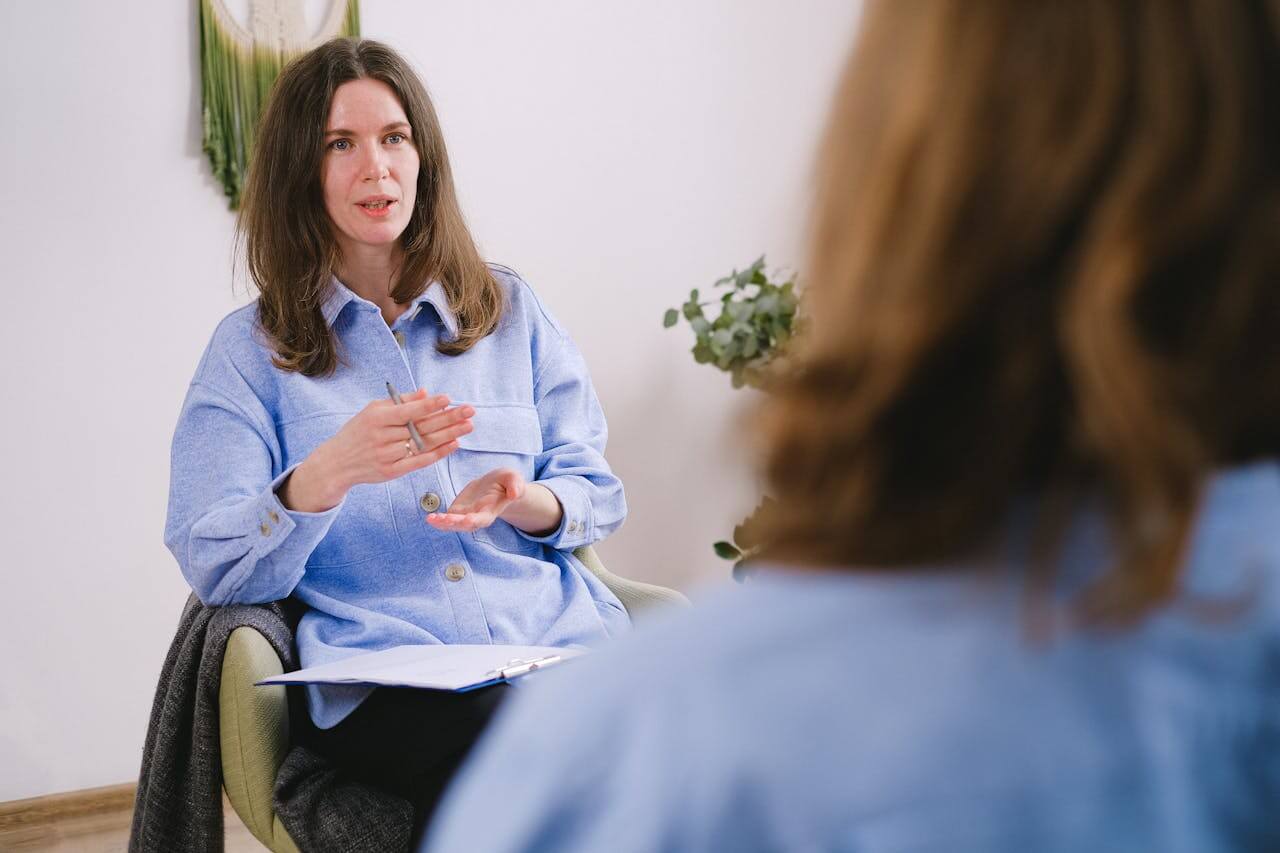How much does counselling cost in Australia?
Counselling in Australia typically costs between $40 to $350 per session, depending on a range of factors including the type of therapist, session length, session format, and your counsellor’s location.
Let’s explore how counselling fees are structured, how much different counselling types cost, and how services like Medicare and private health insurance can reduce your out-of-pocket expenses.
Did you know? With Talked, you can easily book one or multiple sessions with your chosen counsellor or therapist with no upfront payment. Your session fee is only charged 48 hours before your appointment, giving you flexibility and peace of mind.
Understanding counselling session costs
The average counselling session cost in Australia depends on several factors like the provider’s qualifications, the nature of the therapy, and how the service is delivered (in-person or online).
Here's a general guide to the usual prices of a standard 50 to 60-minute session:
Provider or service type | Usual cost per session (AUD) |
|---|---|
Private counsellor | $80 - $150 |
General psychologist | $190 - $280 |
Clinical psychologist | $150 - $300 |
Couples or marriage counselling | $150 - $250 |
Family counselling | $150 - $350 |
Community or NGO services | Free to low cost ($0 - $40) |
If you have Medicare and a Mental Health Treatment Plan, you can get rebates from a counselling session, as long as you choose a Medicare-eligible therapist.
If your private health insurance covers psychology or counselling sessions, you can also use that to reduce costs. Just make sure that your chosen clinic or counsellor is accredited before booking sessions.
Factors affecting counselling costs
1. Professional qualifications
One of the biggest drivers of counselling fees is the provider’s level of training and professional registration. Unlike psychologists, counsellors and their qualifications are not government-regulated in Australia, so their prices are generally lower.
General psychologists tend to charge higher, but sessions with them are usually partially or fully covered by Medicare or private health insurance. Clinical psychologists, with additional training in complex mental health issues, usually charge the highest fees.
2. Type of counselling
The kind of support you're seeking also plays a role in cost. Individual counselling is often the most affordable, as well as the per-person rate of group counselling.
Other common forms of counselling include couple or marriage counselling, family counselling, grief counselling, career guidance, and trauma-informed counselling. These vary in cost depending on the therapist's expertise and approach.
Related: Benefits of seeing a psychologist
3. Session length and frequency
Most counselling sessions last between 50 and 60 minutes, although some therapists offer extended sessions of 75 to 90 minutes for complex issues. Longer appointments usually come with a higher fee. Your required frequency of sessions (weekly, fortnightly, or monthly) will also influence your overall expenses.
4. Location
Where you live can influence what you pay. In major cities like Sydney, Melbourne or Brisbane, counselling fees are often higher due to greater demand and higher clinic overheads. In contrast, regional or rural areas may offer lower fees but can have fewer providers and limited appointment availability.
One key advantage of telehealth counselling is that it helps standardise pricing across Australia. Whether you're in a remote town or a capital city, online counselling gives you access to a broader range of therapists at consistent rates, and often lower than in-person sessions.
5. Medicare and private health insurance cover
Your eligibility for Medicare rebates or private health insurance can significantly affect your out-of-pocket counselling costs. If you have a Mental Health Treatment Plan from your GP, you may be entitled to Medicare-subsidised sessions with a registered psychologist or clinical psychologist. Some providers also offer bulk billing, meaning no cost at all.
In addition, many private health insurance policies with extras cover allow you to claim a portion of your counselling or psychology fees. The rebate amount and number of sessions covered vary between insurers, so it’s important to check the details of your policy. Keep in mind that Medicare rebates typically don’t apply to counsellors unless they are also registered psychologists or accredited mental health professionals.
Is counselling even worth it?

Counselling is one of the most valuable investments you can make in your mental and emotional wellbeing. It offers a safe space to unpack experiences, heal from past trauma, and better understand how those experiences may still affect your life today.
Beyond healing, counselling also supports you in building healthier habits and emotional resilience. It enhances your ability to regulate emotions, improve communication, and respond more thoughtfully in everyday situations.
These skills are especially important in relationships, parenting, and work settings, where self-awareness and emotional stability can make all the difference. Ultimately, counselling isn’t just about feeling better now but also about growing into a more grounded and empowered version of yourself.
Essential Reading
Recommended Therapists Available Now
NSW
Clinical Psychologist
I'm qualified as a Clinical Psychologist and I work with a deep respect for the transpersonal. At the heart of my work is an invitation to explore our inner nature and th...More
NSW
Psychologist
I'm a registered psychologist with over 10 years of experience supporting children, parents, and adults to navigate life's challenges with greater confidence and ease. My...More
QLD
Psychologist
As a psychologist, I value each client as an individual with unique life experiences, skills, and talents. I love helping my clients clarify what makes life rich, full, a...More








